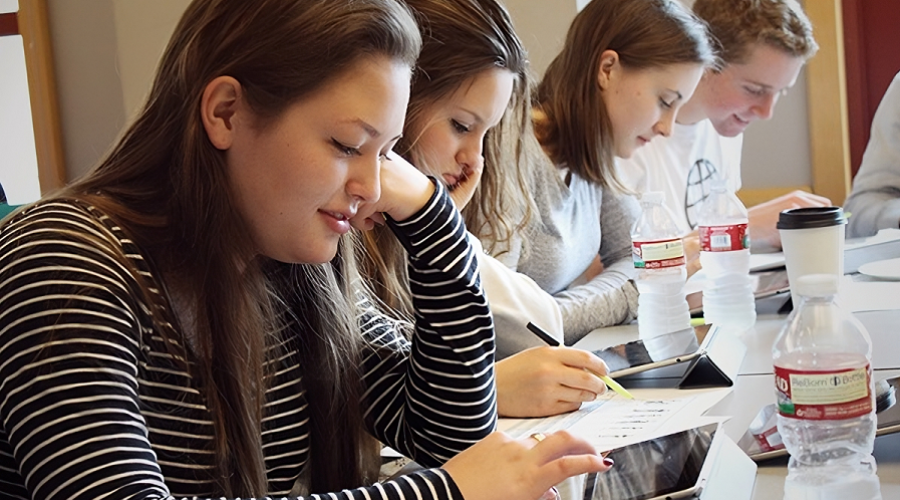
Video Game Helps Teens Prevent Risky Drinking
It’s easy to get swept up in the excitement of a party as a teenager. The house is yours for the night, the music is fun, and you want to impress.
But what happens when the pressure to drink mounts, or a seemingly harmless decision leads to unexpected consequences?
INSPIRE is a revolutionary video game that tackles these real-life scenarios head-on. You play as a teenager hosting a small party, and your decisions shape the night. Will you play a drinking game? Does your party get out of control? Every choice impacts the story, the characters' reactions, and if anything goes terribly wrong.
Unlike traditional lectures or scare tactics, INSPIRE equips teenagers with the confidence and skills to navigate peer pressure through interactive storytelling that teaches through observation and experience. The immersive experience allows them to experiment with different approaches in a safe, virtual environment.
Developed by a multidisciplinary team led by Elizabeth Ozer, PhD, a psychologist and UC San Francisco professor of pediatrics, in collaboration with computer scientist James Lester, PhD, at North Carolina State, INSPIRE has been played by hundreds of adolescents who say it is engaging, relevant, and valuable.
“The implementation of INSPIRE is now being piloted at the UCSF Adolescent and Young Adult Clinic, where our providers discuss alcohol use with teenagers and invite them to play the game at home if they report using alcohol,” said Ozer.
The team’s recent paper in JAMA, led by Anoushka Sinha, MD, a UCSF fellow in the Division of Adolescent and Young Adult Medicine, focuses on the importance of the game narrative and that INSPIRE is ready to be brought into primary care clinics to help prevent risky behavior in teenagers.
Aligning Actions with Goals
Players begin the game by selecting a few long- and short-term goals for the main character, such as staying in control, avoiding trouble, and being a good friend. As the party unfolds and the player reacts to unexpected guests being invited or a friend drinking too much, they can view their goals and see how previous decisions align with them.
Feedback from teenagers in a recent pilot study led by Marianne Pugatch, PhD, a former UCSF fellow, reveals how goal-based decision-making can open alternative, preferred options:
“I like how you could choose your goals for the night… you could still have fun while staying in control of yourself and making smart and safe decisions.”
“The game taught me that there’s always more than one option… there’s more than just the no option.”
Designed with Teens, for Teens
To change behavior effectively, INSPIRE has focused on portraying authentic scenarios with characters that teenagers can identify with.
“We went through many rounds of feedback with diverse groups of adolescents to refine the narrative story, develop characters that the teens could relate to, and create realistic dialogue,” said Ozer.
The result is that teenagers who play the game are exposed to scenarios like the ones they face in real life. They experience what can happen when a party gets out of hand and what choices they can make to stop it from getting there.
One teenage player was surprised at how INSPIRE didn’t let them off easy: “Usually in games, there isn’t pushback when you tell them you don’t want to do [something], but in this game, a friend was trying to get you to do something you didn’t want to do, and it was interesting.”
The INSPIRE project team also includes Jonathan Rowe, PhD, from North Carolina State and Sara Buckelew, MD, MPH, Alison Giovanelli, PhD, Sean Hennigan, MA, Carlos Penilla, DrPH, Kathleen Tebb, PhD, Anoushka Sinha, MD, and Mark Berna, BS from the UCSF Department of Pediatrics. Please see the publications and project website for a complete list of contributors.
